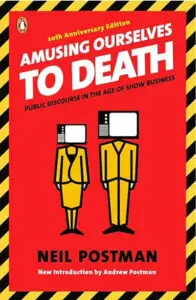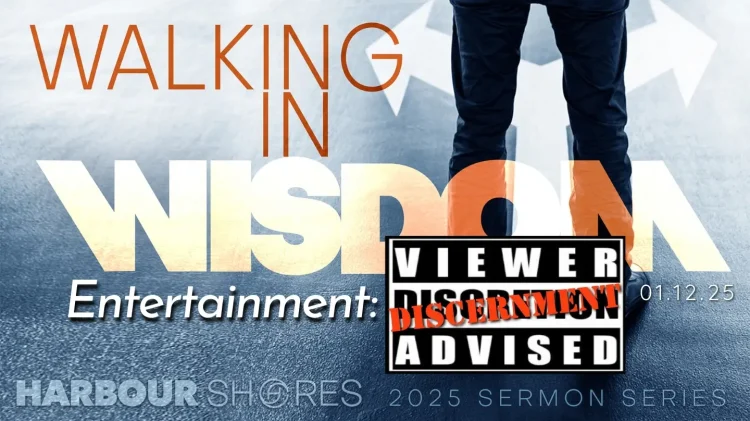
IMPORTANT: Before diving deeper into the topic of Worldliness & Entertainment, I encourage you to listen to the opening message of this series, “As the World Turns”, by Chris Fritz on Jan. 5th, 2025. Even if you’ve listened to it already, his introductory message is worth re-listening to again as Chris covers the overarching objective and gospel centered truth necessary for all 3 of the subsequent topics covered in this Walking in Wisdom series.
Worldliness, Part 2; Entertainment:
Viewer Discretion Discernment Advised
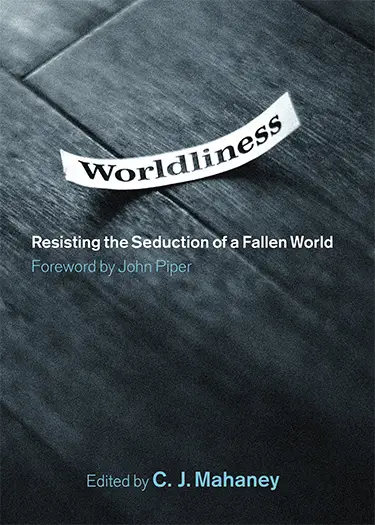
The sermon preached on 01.12.25 at Harbour Shores Church is by elder/pastor Rob Blair. The outline is based on two chapters from the book; Worldliness; Resisting the Seduction of a Fallen World.
Chapter 2: Media by Craig Cabaniss
Chapter 3: Music by Bob Kauflin
Click the links above to open and read the entire chapter for context of the material used in this sermon, or click on the author’s name for their bio page.
The main scriptures for this sermon are Eph. 5:1-21, Phil. 4:1-9, and James 4:1-10.
Additional links to online articles for a deeper dive into this subject:
- Make Christ Your Chief Delight by Jordon Stone
- What is the Connection Between Fasting & Prayer?
- What is Discernment? by Sinclair Ferguson
- I was Far Too Easily Pleased by John Piper
Additional resources for further study and consideration:
Below is the C. S. Lewis’s quote taken from The Weight of Glory, pg. 25-26. Lewis states how ultimately it is not our pleasures and desires which are the heart of our problems, rather what/where those pleasures and desires are being aimed or spent on, and that is something far inferior which was never meant to satisfy.
The New Testament has lots to say about self-denial, but not about self-denial as an end in itself. We are told to deny ourselves and to take up our crosses in order that we may follow Christ; and nearly every description of what we shall ultimately find if we do so contains an appeal to desire.
Indeed, if we consider the unblushing promises of reward and the staggering nature of the rewards promised in the Gospels, it would seem that Our Lord finds our desires not too strong, but too weak.
We are half-hearted creatures, fooling about with drink and sex and ambition when infinite joy is offered us, like an ignorant child who wants to go on making mud pies in a slum because he cannot imagine what is meant by the offer of a holiday at the sea.
We are far too easily pleased.
Those of us who struggle with consuming media/music in large quantities during a single setting, commonly referred to as binging, the following piece from Liturgies for Hope by Audrey Elledge & Elizabeth Moore offers us hope.
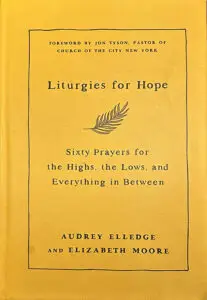
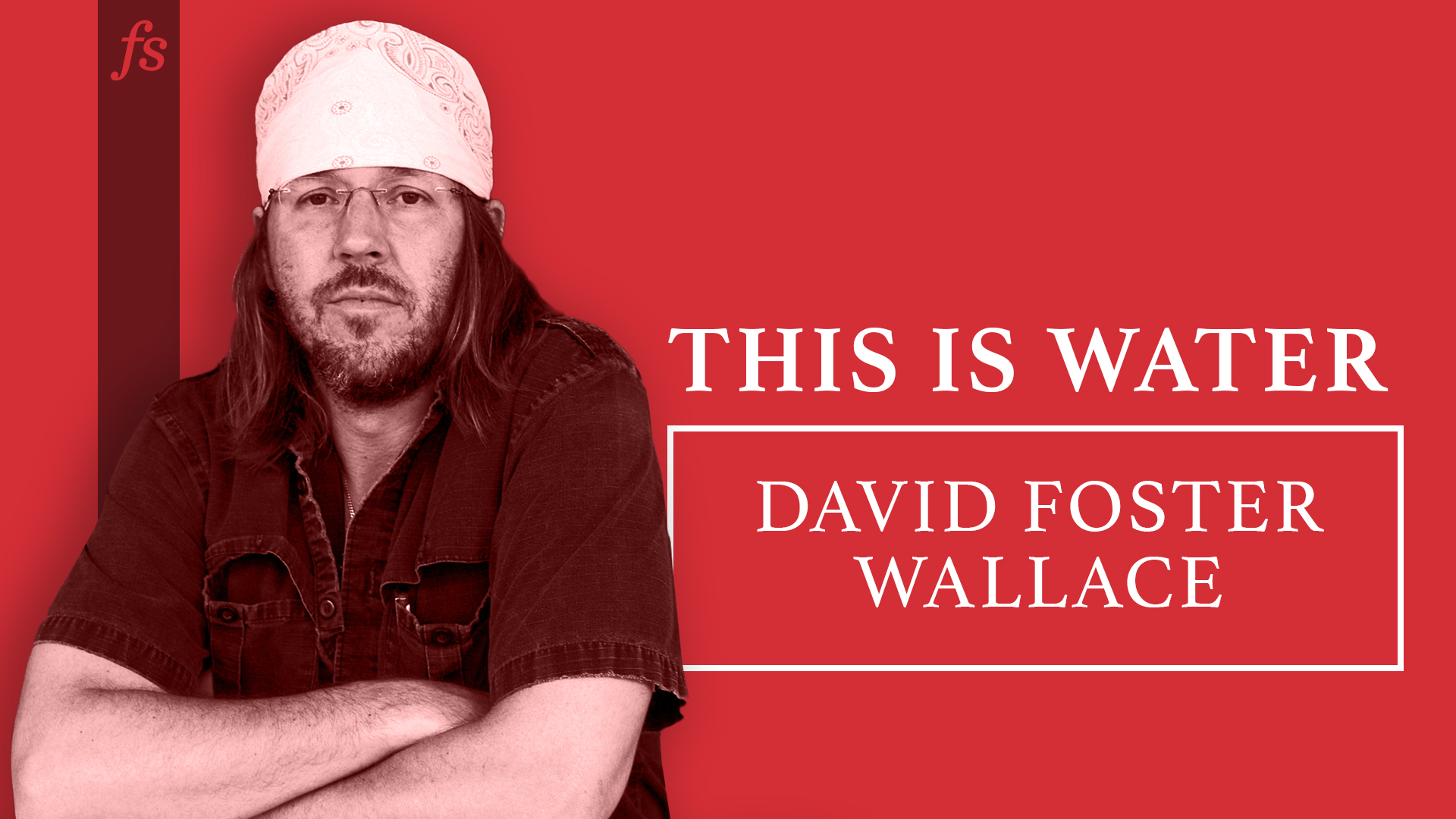
Below is the David Foster Wallace’s quote in context taken from his 2005 commencement address given at Kenyon College. Even though the Wallace is not a Christian, he states with great conviction that ever person is a worshiper of something. This portion picks up in mid-stream of his speech.
Because here’s something else that’s weird but true: in the day-to-day trenches of adult life, there is actually no such thing as atheism. There is no such thing as not worshipping. Everybody worships. The only choice we get is what to worship. And the compelling reason for maybe choosing some sort of god or spiritual-type thing to worship-–is that pretty much anything else you worship will eat you alive.
If you worship money and things, if they are where you tap real meaning in life, then you will never have enough, never feel you have enough. It’s the truth.
Worship your body and beauty and sexual allure and you will always feel ugly. And when time and age start showing, you will die a million deaths before they finally grieve you.
Worship power, you will end up feeling weak and afraid, and you will need ever more power over others to numb you to your own fear.
Worship your intellect, being seen as smart, you will end up feeling stupid, a fraud, always on the verge of being found out. But the insidious thing about these forms of worship is not that they’re evil or sinful, it’s that they’re unconscious. They are default settings.
They’re the kind of worship you just gradually slip into, day after day, getting more and more selective about what you see and how you measure value without ever being fully aware that that’s what you’re doing.
The entire commencement address is available here.
WARNING! The speaker is not a Christian, nor is his worldview fully consistent with a biblical worldview. He uses crude language/cursing. Please use discernment to determine whether or not this material is worthy of your time and attention.
Additional application questions:
- Am I skipping or delaying something important in order to watch this now?
- What are my other social/entertainment options besides watching television or going out to see a movie?
- How much time have I already spent on media today?
- How much time have I spent surfing the Internet?
- How much time have I spent blogging or maintaining an online presence through social network sites?
- In the last week, how much time have I spent on the spiritual disciplines, building relationships, or serving in my local church compared to time spent consuming media?
- After investing the time to view this, will I look back on it as time well spent?
- Why do I want to watch this program or film?
- What do I find entertaining about it?
- Am I seeking to escape from something I should be facing by watching this?
- Am I seeking comfort or relief that can be found only in God?
- What sinful temptations will this program or film present?
- Do I secretly want to view something in it that’s sinful?
- Am I deceiving myself by saying, “I’ll fast-forward through the bad parts”?
- Similarly, am I telling myself, “I’ll just visit this web site once, and I won’t click on any other links I find there”?
- Am I watching because I’m bored or lazy? If so, what does that reveal about my heart?
- Am I watching simply because others are? Am I trying to be relevant or to fit in?
- How have my online relationships impacted my face-toface relationships?
- How has my online activity impacted my soul? For better or worse?
- What motivates me to create and maintain a blog, MySpace, or Facebook presence?
- Am I attempting to impress others? Am I being prideful, slanderous, deceitful, or self-righteous?
- What worldview or philosophy of life does this program or film present?
- What’s the view of man’s nature?
- What’s the view of sin? Is sin identified as such?
- What’s the view of God ordained authority figures? And how do these views relate to God’s view?
- What does this program or film glamorize? What is valued or considered important?
- Who are the heroes of the story? Why are they heroic?
- Is sin shown as having negative consequences? Or is sin glorified or rewarded? Is sin presented in an appealing or seductive way?
- What is humorous in this work? How are people made fun of? What is mocked?
- Does violence appear as a natural part of the story, or is it used gratuitously to entertain?
- What’s the sexual content? Is there nudity? Sensual or seductive dress?
- Are there images, language, or humor that are sexually impure?
- Is sinful self-sufficiency honored?
- Are the heroic characters concerned for others or merely for themselves?
- Does the program or film portray materialism as “the good life”?
- Would seeing this help me better understand God’s world? Would it help me understand my surrounding culture better without tempting me to sinful compromise?
- Will I benefit in any way from viewing this program or visiting this web site? Does its content or artistry reflect truth, beauty, or goodness?
- Online, do I communicate graciously, patiently, and humbly? Do I use crude or arrogant speech? Is my speech consistent with the gospel, or does it reflect worldliness?
Additional Action Steps: (Taken from Worldliness; chapter 3: Music by Bob Kauflin)
Additional resource: the documentary film Captivated that addresses the influence of entertainment in our culture and the many issues brought up in this sermon.
The sermon Viewer Discretion Discernment Advised preached on 01.12.25 by pastor/elder Rob Blair can be viewed below. (The sermon will automatically begin at the 29 min., 24 sec. mark.)



